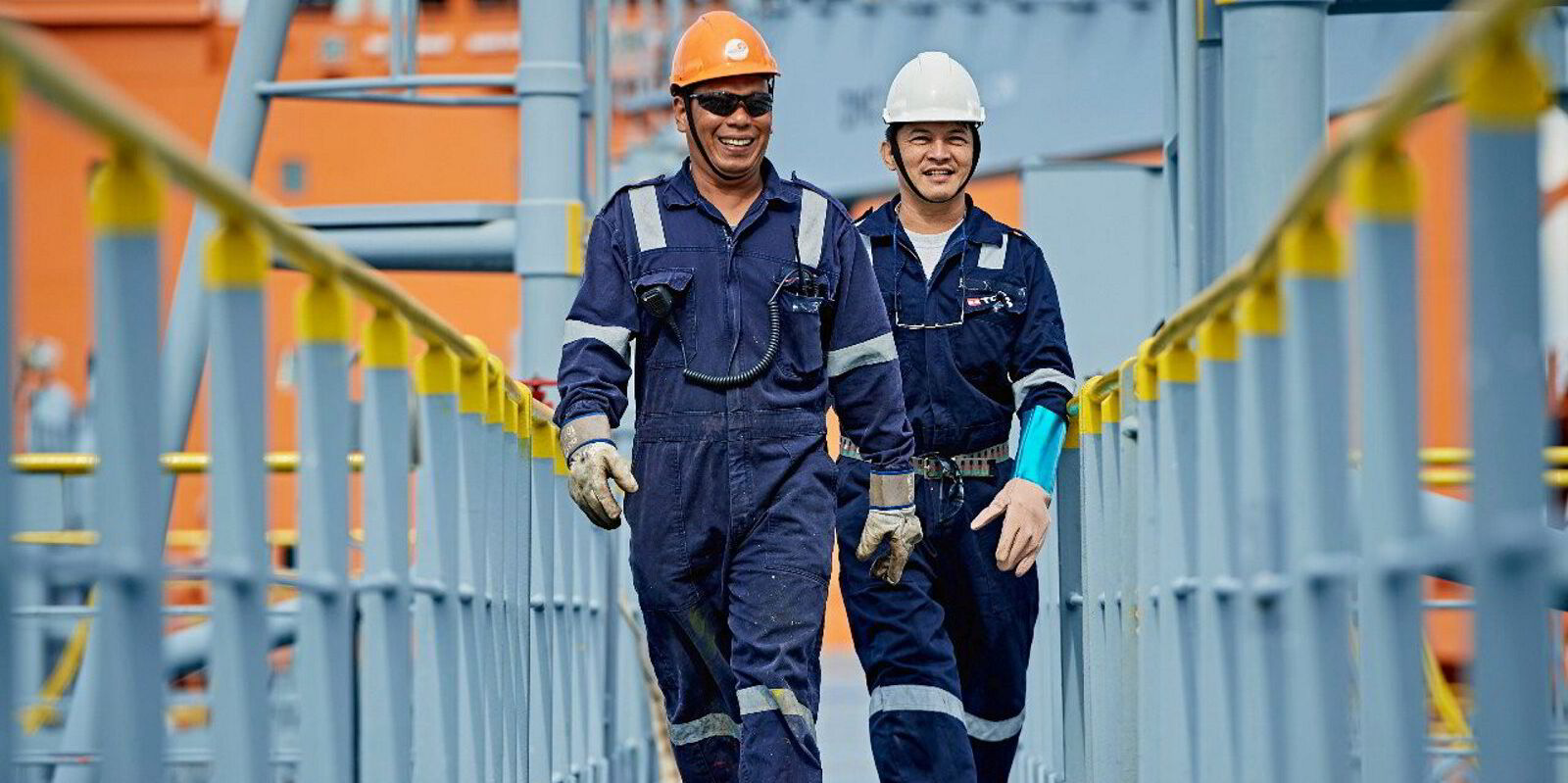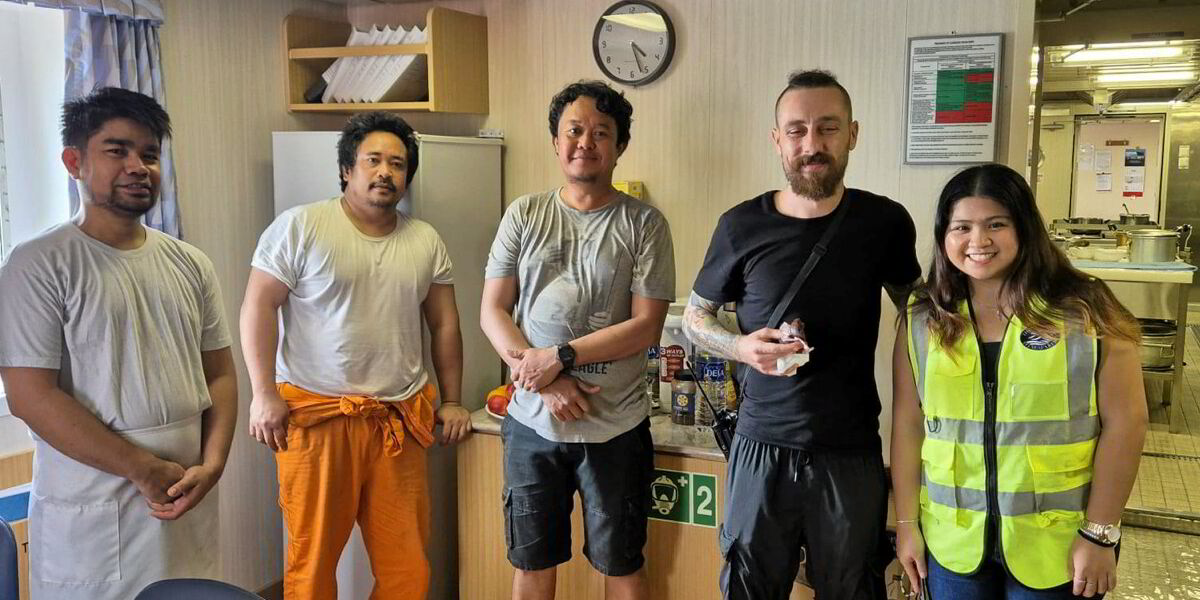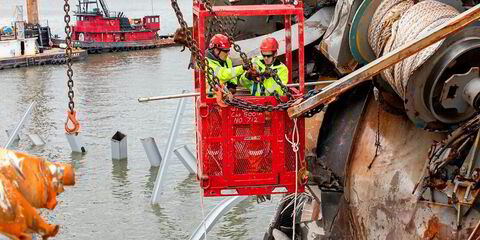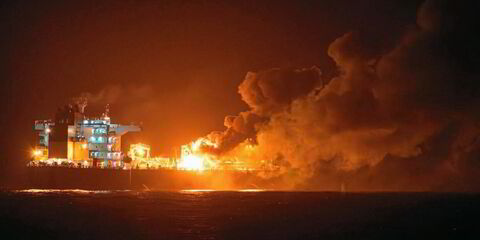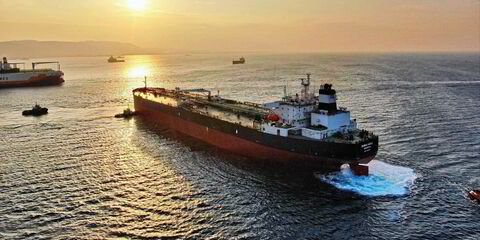Seafarers working on tankers are happier than those on dry cargo or container ships, according to a survey.
Vessel type can significantly affect the wellbeing of seafarers, with those on tankers reportedly feeling well-prepared, qualified and ready to tackle the challenge of new fuels, the Seafarers Happiness Index report found.
In contrast, mariners on dry cargo and container vessels feel left out of crucial technologies and developments emerging in the industry.
The overall findings revealed a slight increase in the happiness index to 6.99 out of 10 in the second quarter, marginally up from 6.94 in the previous three months.
The survey, conducted by the Mission to Seafarers, in association with Idwal and NorthStandard, and supported by Inmarsat, showed “mixed results but an increasingly positive picture of seafarers’ wellbeing”.
Andrew Wright, secretary general of the mission, said: “Although there are still plenty of areas of growth that need attention, our report reveals an encouraging trajectory of steady recovery and stabilisation after what has been a tumultuous year for seafarers.
“However, reports of a distinction between the ‘haves and have-nots’ of welfare standards on board are worrying.”
The report indicated that there is a “digital divide” when it comes to accessing the benefits of modern communications and connectivity at sea, as well as different levels of training and preparedness for new fuels and new technologies for crew on different types of vessels.
Those serving on vessels with up-to-date communications technology commented on how it is transforming the social and emotional landscape of life at sea, as it is critical for connectivity and links to home.
Thom Herbert, key account manager at Idwal, said: “We’re particularly concerned by the emerging ‘two-speed’ industry revealed in this report, especially the ongoing issue around connectivity and also the readiness for new technologies, where the disparity in experiences between tanker crews and those on dry cargo vessels is striking.
“It’s crucial that the industry addresses the digital divide and ensures equal access to training opportunities across all vessel types.”
Shore leave and recreation
Shore leave, another crucial aspect for maintaining mental and physical health, is often restricted by tight port schedules, regulatory barriers and inconsistent practices across different ports and companies, the report said.
Access to recreational facilities such as gyms is essential for maintaining health, and the quality of equipment and safety standards often needs to be improved.
Cost-cutting measures can lead to monotonous meals, adversely affecting morale.
The multicultural nature of crews is seen as presenting opportunities for enriching cultural exchange and challenges in managing social dynamics, highlighting the need for practical social activities to foster bonding.
Yves Vandenborn, head of loss prevention at NorthStandard, said: “This quarter also registered a higher female participation rate at 15% from 9% last quarter.
“Although the data indicates improvements across several areas, there remains room for improvement in satisfaction levels for connectivity, health and fitness.”
Bureaucratic burdens add another layer of stress. Paperwork and regulatory requirements are increasing despite the push for digitalisation.
Workload varies widely depending on the type of ship, company policies and schedules, exacerbating these challenges.
The survey said some seafarers reported often feeling unrecognised and unsupported when ashore, underscoring the urgent need for greater respect and acknowledgement of their contributions to global trade and the economy.
“It is critical that the industry continues to support and bolster seafarers to maintain this positive momentum,” Wright said.
“Our job is to raise the profiles and voices of seafarers by building a maritime industry that truly values seafarers’ living standards, welfare and happiness across the globe.” (Copyright)
